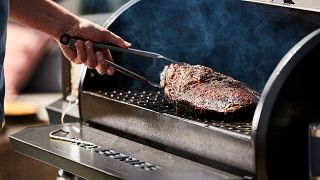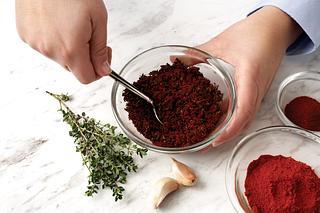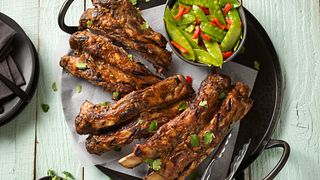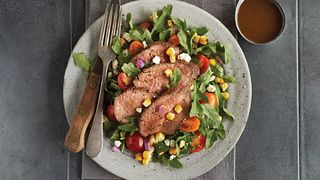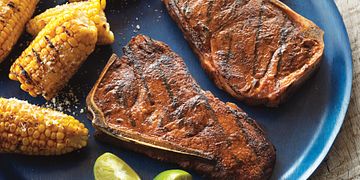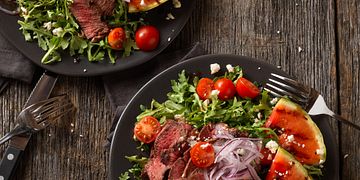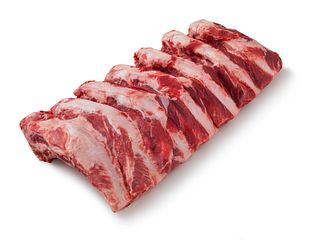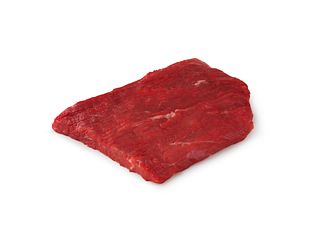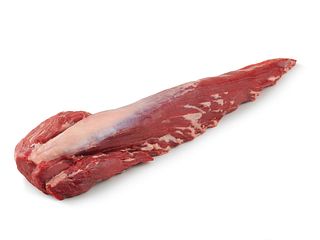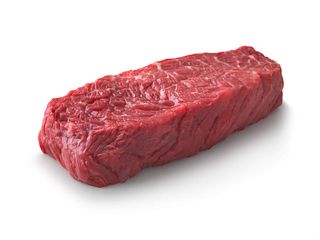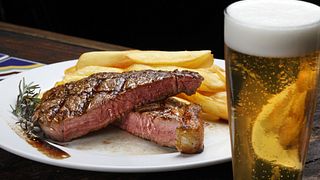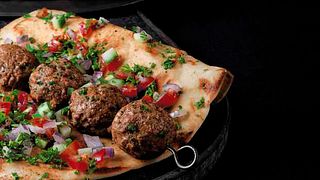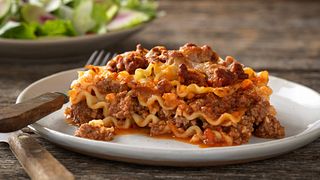Indirect Grilling Basics
Indirect grilling requires little hands-on attention, but gives you maximum flavor. It's like slow cooking, but on the grill!
Indirect Grilling Basics
This technique is called indirect grilling which means indirect heat, lower temps and longer cooking times. Check out our indirect grilling guidelines for more cooking time information.
PREPARE THE BEEF
When you’re ready to get started, pull the beef out of the fridge and season well. Depending on your recipe, now’s the time to apply a rub, herbs or other spices.
READY THE GRILL
Take a few minutes to configure your grill. As the name suggests, indirect grilling positions the beef away from the heat source instead of directly over it. If you’re using charcoal, this means arranging the coals off to one side of the grill and cooking on the opposite side. If you’re using gas, refer to your owner’s manual and bring the grill to medium heat on one side only.
LET IT BE (MOSTLY)
Keep the lid closed for best results. You should follow your recipe for timing, but also may want to use an oven-proof meat thermometer to confirm when time’s almost up. Be careful not to overshoot your target temperature because it will continue to rise for several minutes after coming off the grill. Larger roasts will take longer to cook using indirect grilling.
GIVE IT A REST
Don’t skip this step! Resting is essential to keep all those delicious juices from draining out of the meat, and makes the next step easier. The larger cuts that work best for indirect grilling generally need more time to rest—often up to 15–20 minutes. Set the meat on your cutting board or a serving tray and cover it loosely with aluminum foil (this is called “tenting”).
CARVE & SERVE
When you’re ready to carve, take care to not pierce the beef with a fork. Instead just use tongs to hold the roast in place. Depending on your recipe or desired presentation, slice the beef thinly across the grain and serve on a warm plate or tray.
Glossary
Drip Pan
An underrated component of any grill set-up, a drip pan—usually made of disposable foil— catches drippings from your meat, preventing dangerous flare-ups.
Santa Fe Steak
Steak cut from the thin, lean muscle that covers the Top Round. Can be used as an alternative to Skirt or Flank Steaks. Benefits from tenderization.
Tenderloin, Boneless
A long, narrow, and lean muscle located within the Loin, this is the most tender cut of beef available. The Tenderloin is the source of Tenderloin Steak or Filet Mignon, and is a component of T-Bone and Porterhouse Steaks.
Denver Steak
Cut from the center of the Under Blade, these steaks are extremely tender with a good amount of marbling and beef flavor. Best when cooked over high heat on the grill.
Pairing Beef and Alcohol
While it all comes down to personal preference, we have compiled some general guidelines to finding the perfect beef and alcohol pairing.
Explore our Recipe Collections
Apply your cooking skills in the kitchen by trying one of our delicious recipes. No matter what you're in the mood for, we have a recipe collection that is sure to satisfy.
rancher recipes
Crafted by ranchers across America, these recipes are flavorful, nutritious and proven to satisfy the heartiest of appetites.

GROUND BEEF RECIPES
The versatility of Ground Beef has made it one of America’s all-time favorite. From hamburgers to lasagna, tacos to meatloaf, pasta sauce to wraps, Ground Beef offers easy and delicious options for any meal.
